June 6, 2025 | 06:45 GMT +7
June 6, 2025 | 06:45 GMT +7
Hotline: 0913.378.918
June 6, 2025 | 06:45 GMT +7
Hotline: 0913.378.918
The government’s determination ensures an efficient adaptation to the European Union Deforestation Regulation (EUDR). The Ministry of Agriculture and Rural Development (MARD) is developing a National Action Plan for Vietnam’s Agriculture Sector to comply with EUDR.
Vietnam Agriculture Newspaper had an interview with Mr. Nguyen Do Anh Tuan, Director of the International Cooperation Department (ICD – MARD) to delve more deeply into this topic.
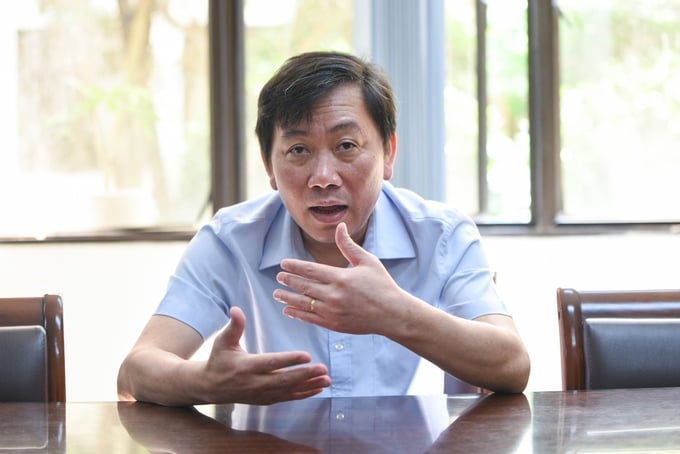
Mr. Nguyen Do Anh Tuan, General Director of the International Cooperation Department (MARD), shared about developing an action plan for Vietnam's agricultural sector with EUDR. Photo: Tung Dinh.
Could you inform us about MARD’s approach to the National Action Plan for Vietnam’s Agriculture Sector to comply with EUDR?
EUDR is the EU’s latest regulation regarding green and sustainable development, specifically considering deforestation-free agricultural products. This is a necessary change as the global market, not just Europe, is headed toward green consumption.
Vietnam’s agriculture joined the global market very early and has since built a connection, so it is reasonable to adapt to changes in consumption trends. New regulations like EUDR are not only challenges but also opportunities for Vietnam in aiming for sustainable agricultural development as well as farmers’ benefit.
However, to meet the EU’s new requirements, we cannot apply top-down policy-making since Vietnam’s agriculture is mainly built off of small-scale producers and enterprises. Therefore, we need close collaboration between the public and private sectors, central and local governments, domestic and international entities. We consider enterprises and farmers as core actors as we are formulating and implementing measures to adapt to new market trends and promote green and sustainable development in Vietnam.
As Europe has set a deadline for EUDR implementation in December 2024 (June 2025 for small and micro enterprises), we need to urgently pursue related activities. Specifically, MARD is drafting the National Action Plan while also organizing information dissemination seminars and actively implementing several pilot models.
How are other countries approaching EUDR, sir?
So far, many countries have expressed concern about the EU regulation. The reason is that they are unsure whether they could meet the EUDR since they have many agricultural production areas intercropping with forests or related to deforestation activities.
Many countries even directly consulted with the EU to delay the application of new deforestation regulations. However, once the EUDR was approved by the European Parliament and the European Council, it meant a mutual agreement between 27 EU member states. Since a strict process has led to this new decision, it is very unlikely to be changed under any circumstances.
Circulating back to Vietnam, as in the conference “Deforestation-free agricultural production and supply in compliance with European Union regulation” on June 29, MARD Minister Le Minh Hoan emphasized that Vietnam is ready and will have a plan to align with the EU Deforestation Regulation.
Accordingly, Vietnam’s readiness for EUDR means complying with the requirements of the leading market for exporting agricultural products. It is also to create an opportunity for us to move towards a green and sustainable direction, orientating with the strategy of agriculture and rural development.
Recently, to demonstrate our readiness, Vietnam organized discussions regarding technology and administration with the EU. Additionally, we also consulted development organizations such as IDH, and 4C and called for the participation of local authorities, businesses, industry associations, and farmers’ organizations.
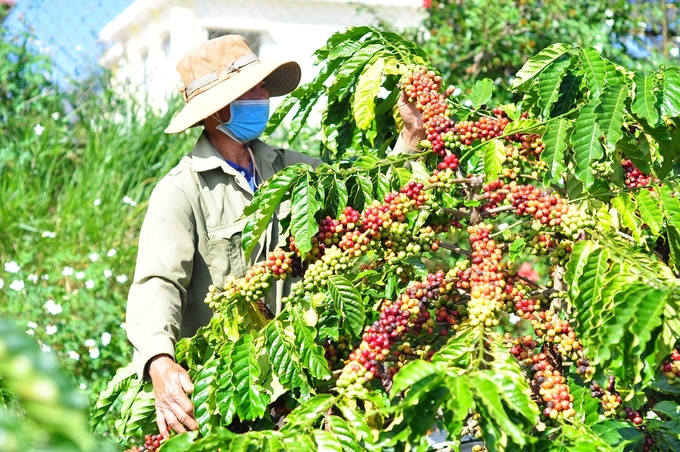
The deadline for EUDR is coming soon, and the Vietnamese agricultural sector needs to have a specific action plan with this regulation. Photo: Minh Hau.
And with that readiness, as the deadline of December 2024 is approaching, how will our actions comply with the EUDR?
EUDR is a very recent regulation and even the EU side is still preparing detailed instructions since this regulation applies to both farmers inside and outside Europe.
Therefore, we will continue to exchange information with the EU in order to provide the most specific guidelines for local businesses and farmers.
In particular, building a database on planting area codes and traceability will be implemented so as to ensure reliability, but must be simple, convenient, and low-cost. We have agreed with the EU specialists that this regulation should not be a barrier to trading agricultural products between Vietnam and European countries.
To achieve that, we will actively, directly, and regularly communicate with European offices. As the National Action Plan is being developed, we will set up a hotline so that specialized departments can work together on a regular basis, ready to handle unexpected issues.
In addition, we also request the EU to provide legal advice to Vietnam in the implementation of EUDR.
Can you briefly state the main objectives of the National Action Plan for Vietnam’s Agriculture Sector to comply with EUDR?
Back to the technical issue, when EUDR takes effect, there are three agriculture sectors of Vietnam that will be most affected, including wood, rubber, and coffee.
However, timber and rubber are two commodities that have joined the VPA/FLEGT Agreement, and are actively implementing the international certification of FSC for timber and PEFC for rubber and sustainable forest management.
Therefore, when the EUDR takes effect, we only have to provide more information in order to proceed with usual commercial activities since the process is quite similar.
As for the coffee industry, in addition to Europe being a large import market (accounting for 40% of Vietnam’s exports), Vietnam still has about 10% of the coffee-growing area with high risks related to deforestation. As coffee’s price is increasing, we need to strictly comply with the new EU regulations. Farmers must not deforest to expand the area of coffee plantations because it will cause serious consequences to Vietnam’s reputation as well as increase the risks when the EU assesses Vietnam’s EUDR compliance capacity.
Therefore, within the next 18 months, MARD’s action plan aims to inform all subjects related to EUDR in Vietnam so that they understand the regulation.
Besides, a common database platform will support businesses in the process of providing information and confirming area codes and traceability for the EU side.
Specialized offices under MARD will develop a set of guidelines so that local authorities, businesses, and farmers can comply with and meet the EU’s new requirements.
At the same time, we will also build public-private partnerships at both central and local levels to implement the aforementioned activities.
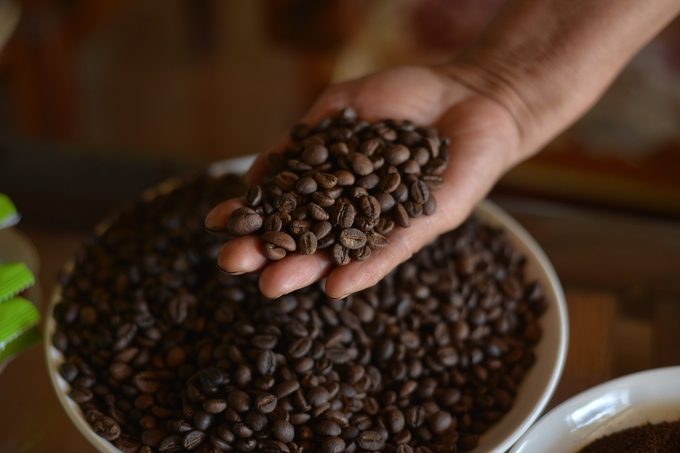
Public-private partnership and the participation of the international community is considered suitable solutions for Vietnamese agriculture to approach EUDR. Photo: Minh Hau.
Then, how do you plan to include international organizations as well as the private sector to participate in this action plan?
Internationally, of course, the first partner that we call for participation will be EU agencies. Currently, they are ready to assist Vietnam in technical matters and information declaration.
Along with that is supporting livelihood development for households affected by EUDR, especially ethnic minorities who are growing coffee in areas interspersed with forests.
We also call for the support of European members who are interested in this topic, such as Germany, Belgium, the Netherlands, Switzerland, etc.
In addition, there are various international organizations with experience in this field, such as IDH, 4C, Grow Asia, etc. It is also possible to attract large multinational corporations with policies on sustainable development and investment in regenerative agriculture such as Néstle.
Particularly, within the framework of the Partnership for Sustainable Agriculture Development in Vietnam (PSAV), Nestlé Vietnam Co., Ltd., representing Nestlé Global Group, signed a Memorandum of Understanding with MARD on strengthening public-private partnership to develop sustainable, regenerative, and low-emission agriculture.
We have launched the project “Agroforestry and reforestation in the Central Highlands of Vietnam,” aiming to plant at least 2.3 million trees (wooden trees, fruit trees, etc), helping to absorb and store about 480,000 tons of CO2 over a five-year period (2023–2027).
We have also called for the cooperation of exporters and related industry associations to jointly develop programs and take initiatives to adapt to the EUDR.
Thank you, sir!
Translated by Quynh Chi
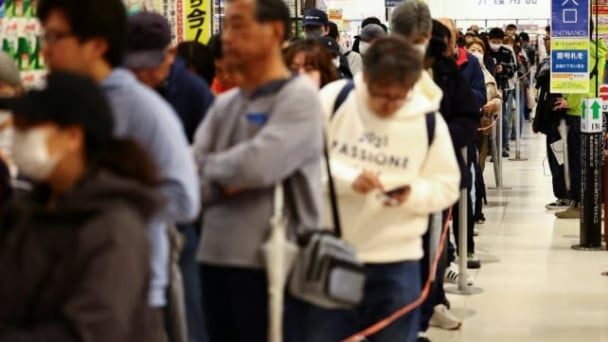
(VAN) Stores have started selling rice from the government’s stockpile to feed demand for the staple.
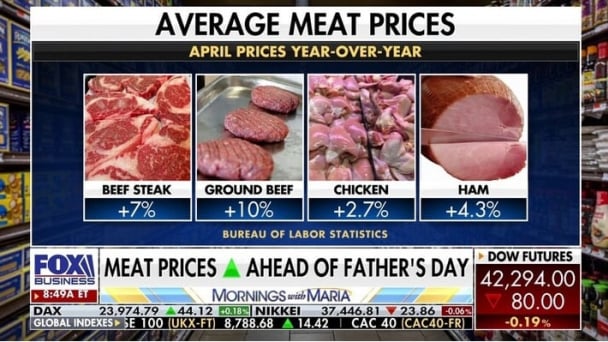
(VAN) Omaha Steaks CEO says rebuilding cattle herds will take about a year to ease price pressures.
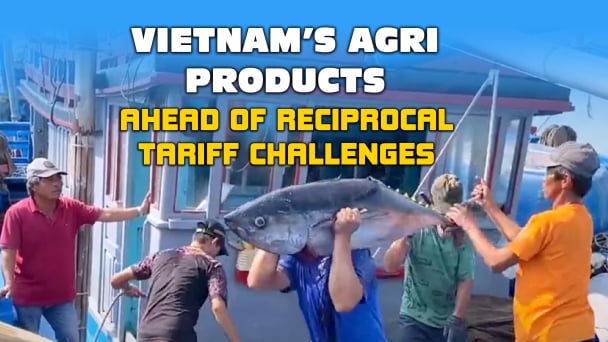
(VAN) Reciprocal tariffs and recent NOAA rulings are presenting substantial obstacles for Vietnamese tuna exporters in the U.S. market. As a result, the industry is actively seeking alternative export destinations.
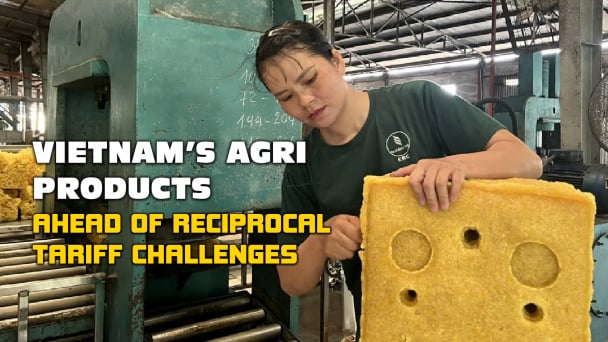
(VAN) Although the U.S. holds a small share of Vietnam’s rubber exports, newly imposed reciprocal tariffs are expected to impact the sector. Vietnamese enterprises must optimize the use of significant markets and free trade agreements.
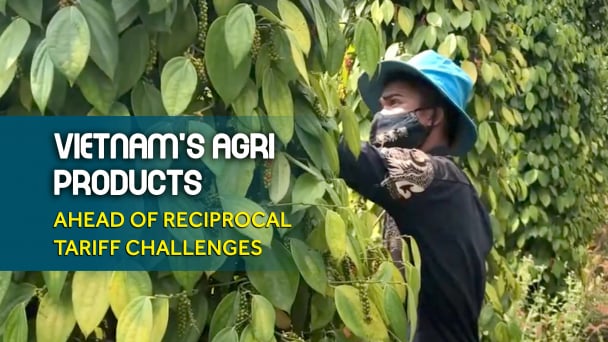
(VAN) Vietnam's pepper industry is looking forward to the final tariff decision in order to sustain its robust presence in the United States, the country's biggest pepper market.

(VAN) The U.S. is the largest market for Vietnamese cashew nuts. However, when exports to the U.S. encounter difficulties due to reciprocal tariffs, Vietnamese cashews still have many other potential markets.
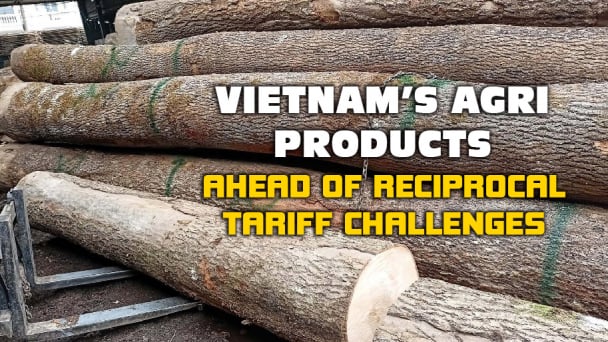
(VAN) Reciprocal tariffs present a significant obstacle to Vietnam's wood exports to the United States; however, domestic wood businesses are endeavoring to preserve their market share in this critical market.